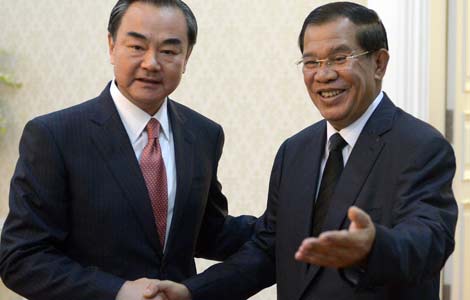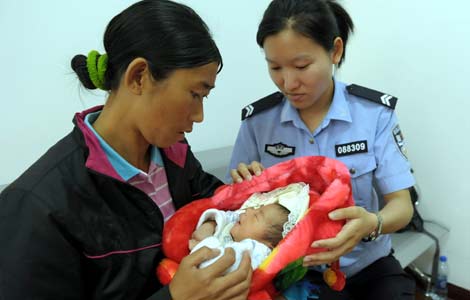Doping crackdown planned for Games
Updated: 2013-08-22 07:38
By Lei Lei (China Daily)
|
||||||||
Stringent measures will be in place to control doping at the 12th National Games, a senior anti-doping official said, as authorities announced on Wednesday that eight Chinese athletes failed drug tests in the second quarter of the year.
"Since last year, we have conducted more special doping tests of the athletes who will take part in the National Games," Zhao Jian, vice-director of China's Anti-Doping Agency, told China Daily.
"Officially, we will use the biological passport program during the National Games for the first time."
The National Games will be in Liaoning province from Aug 31 to Sept 12.
The Anti-Doping Agency said that although the number of athletes participating in the Liaoning games is lower than in previous games, the number of doping tests will be a historic high of 2,575, with 2,300 urine tests and 275 blood tests. The total will be 12 percent more than the National Games in Shandong four years ago, and the biological passport will be a new way to supervise athletes.
A biological passport is an electronic record of doping and doping test results. According to the Swiss Laboratory for Doping Analyses, doping violations can be found by noting variances from established levels outside permissible limits, rather than testing for and identifying illegal substances.
China introduced the new anti-doping plan in 2012. About 100 Chinese athletes have a biological passport.
Top women's marathon runner Wang Jiali became the first Chinese athlete to fail the biological passport program.
Wang, a former Beijing Marathon winner and national champion, has been suspended since February after anomalies were discovered in her biological passport, which recorded data from her blood samples between May 2012 and this January.
The 27-year-old had never tested positive for doping before.
Wang and seven other athletes tested positive from a total of 4,768 tests in the second quarter of the year, the anti-doping authorities said on Wednesday.
There have been 12 doping cases this year so far, the same number recorded in all of 2012.
"The number of positive cases has largely increased compared with that of last year, which was a red alert for us," said He Zhenwen, director of China's Anti-doping Agency.
"There always will be someone who risks doping for an unfair advantage when the rewards are lucrative. History suggests that the National Games could well be the reason for cheating."
The National Games, which began in 1959 with the aim to promote sports among the public, attracted teams that represented provincial regions.
The National Games program includes most Olympic sports. Good results at the games are viewed as achievements of provincial sport bureaus and usually bring medal winners even more rewards than international titles do, and that tempts more athletes to risk using drugs.
Sports Minister Liu Peng urged all officials to pay attention to the anti-doping campaign during the games.
"From those cases that happened before, we can say that the possibility of that happening during the games is also high," said Liu, director of China's State General Administration of Sport.
"We should take more serious measures to stop them because although they are not common, they will damage the image of the National Games and even Chinese sports themselves," he said.
Xinhua contributed to the story
leilei@chinadaily.com.cn
(China Daily USA 08/22/2013 page3)

 Manning gets 35 years in WikiLeaks trial
Manning gets 35 years in WikiLeaks trial
 At least 37 killed in Malaysian bus crash
At least 37 killed in Malaysian bus crash
 FM calls for closer Cambodia relations
FM calls for closer Cambodia relations Problems for rural kids in cities
Problems for rural kids in cities
 Search for escaped crocodiles continues
Search for escaped crocodiles continues
 Police break up baby trafficking ring
Police break up baby trafficking ring
 Jeremy Lin celebrates birthday in basketball clinic
Jeremy Lin celebrates birthday in basketball clinic
 Police identify suspect in US school shooting
Police identify suspect in US school shooting
Most Viewed
Editor's Picks

|

|

|

|

|

|
Today's Top News
Bo Xilai stands trial for bribery, embezzlement
Affluent tourists 'go it alone'; seek culture, good food
Sales of iPad fall as Android-based devices gain
Manning gets 35 years in WikiLeaks trial
Chinese workers detained in Russia
US spying raises tensions with China
Wildlife plan struck with Kenya
Egypt court orders Mubarak's release
US Weekly

|

|







